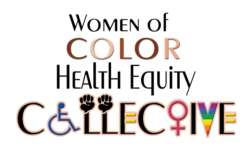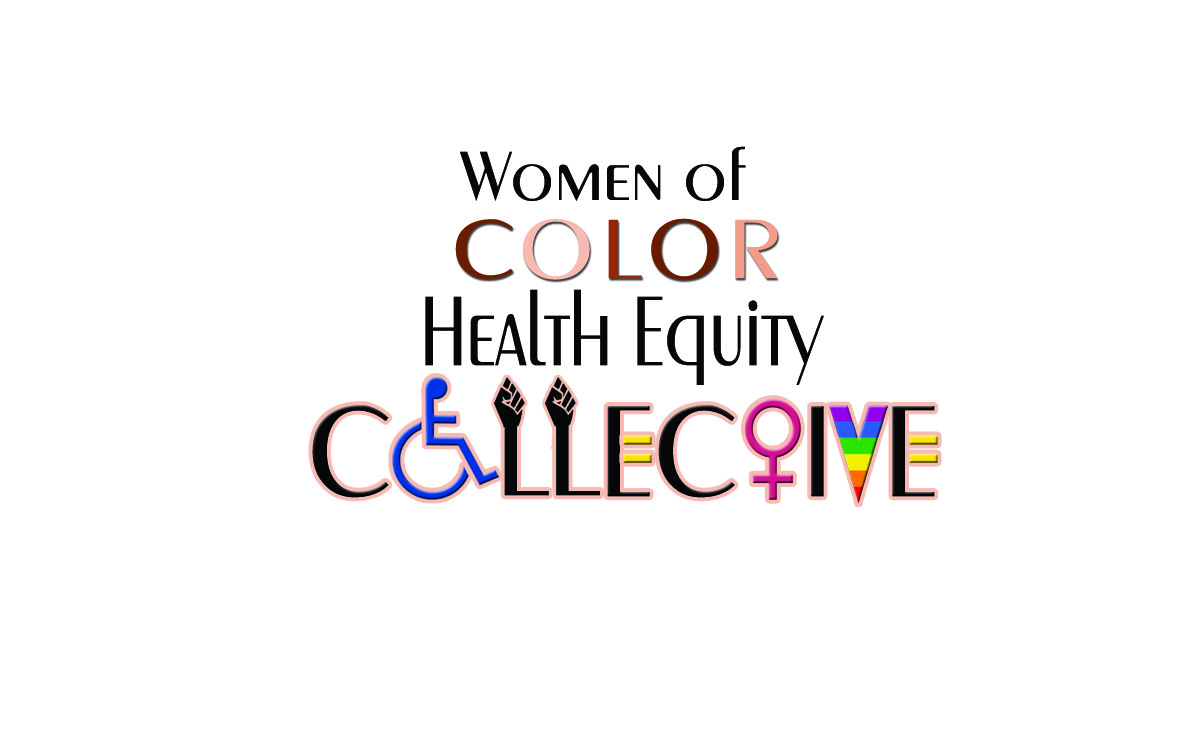core blueprint
The Community of Racial Equity (CORE) Blueprint is a transformative 18+ month cohort experience designed to facilitate deep and lasting relationships while nurturing participants into effective leaders on the path to racial equity. It centers on community and encompasses three (3) essential components that operate at three (3) distinct levels, fostering personal growth, organizational change, and broader societal transformation. This comprehensive framework equips individuals with the knowledge and skills needed to tackle the complexities of racial equity, empowering them to become influential leaders in the ongoing journey toward a more equitable and inclusive society.
CULTURAL HUMILITY
The CORE Blueprint is built upon a philosophy of Cultural Humility, which is the cornerstone principle offered by the Women of Color Health Equity Collective. Cultural Humility is a philosophy that empowers individuals to effectively engage in interpersonal relationships that are dynamically diverse and mutually respectful. It is a life-long and ongoing process of self-reflection and self-critique in which individuals expand their capacity for learning, listening, and understanding, regardless of their experiences with cultures other than their own.
Cultural Humility, as the foundational element, profoundly emphasizes the cultivation of a mindset marked by self-awareness, respect, and an unwavering openness to diverse perspectives. It vigorously promotes the notion that comprehending and valuing diverse cultures, backgrounds, and experiences is an indispensable prerequisite for the creation of an inclusive and equitable environment. Cultural Humility serves as the cornerstone upon which the entire framework is constructed, underscoring the imperative of infusing humility, empathy, and a steadfast commitment to learning from and alongside others into all organizational endeavors.
With cultural humility, there is a deliberate emphasis on the critical role of team building at all organizational levels. It acknowledges the inherent challenges that discussions about racial equity can pose, recognizing that genuine growth and development demand a deeper level of interpersonal connection. The framework seamlessly incorporates trust-building activities into regularly scheduled meetings to address this need. These activities span a spectrum, ranging from simple icebreakers like sharing one’s favorite color to more intricate discussions, such as collectively identifying and addressing global challenges. These team-building activities transcend personal interests and extend to project-related discussions, creating an environment where participants can openly express their aspirations and expectations. The aim is to nurture relationships and trust among participants, empowering them to not only recognize but also address instances of racial inequity, white supremacy, or any other form of discrimination in a secure and responsive setting.
COMMUNITY FOCUSED
Transforming our Community to be socially just and racially equitable is the driving force behind this endeavor. The CORE blueprint is one approach to dismantling entrenched historical and systemic barriers that have perpetuated injustice and inequality, paving the way for a community where every individual, regardless of their background, enjoys equal access to opportunities, resources, and representation. This work not only enriches the community’s fabric but also fortifies its collective well-being and resilience. By prioritizing racial equity, we actively reject discrimination, fostering unity and understanding among our diverse community members. In essence, our commitment to this work is a dual pursuit of both moral imperative and practical necessity, aiming to create a stronger, more cohesive, and fair community that thrives on the principles of justice and equality for all.
Component #1. Technical Assistance Hub
At the core of the CORE Blueprint, you’ll find the Technical Assistance Hub, a pivotal resource offering comprehensive support for organizations looking to bolster their equity and inclusion endeavors. This hub provides an array of essential services, encompassing training, assessments, consulting, and coaching, making it the central hub for accessing expertise and guidance. Its primary role is to help organizations navigate the intricacies of cultural competence and social equity, equipping them with the necessary tools and knowledge to facilitate substantial and enduring change.
The commitment of the CORE Blueprint’s Technical Assistance Hub extends to universal learning. It ensures that learning opportunities extended to the CORE team remain up-to-date, relevant, and conducive to collective growth within the group and the broader community. This component essentially acts as a dynamic resource center, assuring that the training and support it provides continually align with the evolving requirements and dynamics of equity and inclusion initiatives, benefiting not only the CORE team but also its affiliated cohorts.
COMPONENT #2. PEER SUPPORT NETWORK
Within the CORE Blueprint, the Peer Support Collective stands as a central and vital element, fostering a sense of community and shared responsibility for advancing progress. Comprising a diverse group of individuals, this collective plays a pivotal role in shaping the agenda for learning and development. It serves as a platform where members engage in open dialogue, exchange experiences, and pool their collective wisdom to drive meaningful progress. This aspect of the framework exemplifies the power of peer-driven initiatives and underscores the synergy that emerges when individuals unite to champion cultural understand and social equity. In essence, the Peer Support Collective is an essential element of the CORE Blueprint, emphasizing collaboration and mutual growth among its members.
This collective builds secure and supportive relationships, allowing participants to confidently address issues related to racial inequity and discrimination. It creates a space where individuals come together, forge relationships, and nurture trust. Its primary aim is to establish an environment where participants can strengthen interpersonal relationships and foster a profound sense of community within the CORE team. Ultimately, the Peer Support Collective strives to empower participants to confidently identify and address issues related to racial inequity and discrimination.
COMPONENT #3. SHARED RESPONSIBILITY & ACCOUNTABILITY
Shared responsibility and accountability, two integral elements within the framework, create a dynamic environment for societal change. First, they foster a collective commitment among all stakeholders, be they individuals or organizations, actively engaging in the pursuit of the desired societal transformation. This collective commitment instills a sense of ownership, encouraging every participant to play a pivotal role in achieving the framework’s goals. The result is a more comprehensive and impactful effort, as the entire community works together to drive change.
Furthermore, accountability within the framework ensures transparency and ongoing evaluation of actions and outcomes. Participants commit to regularly assessing their progress, holding both themselves and their peers accountable for the set objectives. This process facilitates a continuous cycle of improvement, where successes are celebrated and areas needing enhancement are identified. Moreover, these elements cultivate an environment of trust and collaboration as participants recognize their shared responsibility for the framework’s success. This shared sense of responsibility encourages harmonious teamwork, the exchange of information, and the support needed to achieve the desired change.
Ultimately, shared responsibility and accountability promote lasting, sustainable change, driving the consistent implementation of strategies, policies, and actions required for achieving the desired transformation. This approach ensures that the change is not a short-term effort but a long-lasting and impactful shift. Moreover, it advances inclusivity and equity by involving everyone in decision-making processes and equitably distributing the benefits of change. This approach addresses systemic discrimination, making the framework a catalyst for fairness and justice in society.
THE DESIGN TEAM
A small group of 3 to 5 members of the CORE operates as a Design Team and is responsible for shaping the containers’ development. This Design Team, likened to “architects,” plays a pivotal role in planning, scheduling, and evaluating the framework’s initiatives. Their responsibilities extend to documentation and reporting, ensuring that the progress and challenges are well-documented and effectively communicated to stakeholders. The team offers expert guidance and cultivates connections, actively constructing a supportive network for the container. As architects of the CORE team, the Design Team plays a central role in steering the CORE Blueprint’s implementation, fostering collaboration, and guiding the Container towards greater equity and inclusivity.
Through their multifaceted role, the Design Team drives the CORE Blueprint’s execution, orchestrating the CORE team’s progress and forging partnerships that contribute to a more equitable and inclusive future.
THE BUILDERS
The Community of Racial Equity referred to as “CORE” in the CORE Blueprint, is a dynamic and inclusive entity comprising the Design Team members, representatives from each organization receiving services, and other key stakeholders who share a vested interest in advancing the cause of racial equity. Within CORE, these individuals are referred to as “builders” because they play an active role in shaping the container within which the team operates. Their role is pivotal in driving meaningful change and ensuring the success of the initiative. Builders play a crucial part by offering valuable input and feedback to the Design Team. They actively engage in the ongoing process of shaping CORE team learning, guiding cohort activities, and participating in the essential evaluation of the initiative’s progress.
Builders typically convene monthly, working collaboratively to fulfill various responsibilities that contribute to CORE’s effectiveness. These responsibilities include providing essential input and feedback that informs the framework’s development and participating in dedicated learning sessions, meetings, and events, all geared toward furthering their understanding and engagement with the racial equity mission. They also actively contribute to the crucial process of evaluation, which allows the initiative to measure its impact and effectiveness. Additionally, builders play a vital role in building and nurturing relationships within the CORE team, establishing trust, and fostering collaboration among all stakeholders. They serve as a critical bridge, interfacing with the broader community to ensure that CORE’s efforts are well-aligned with the community’s needs and goals. In essence, builders within CORE are the active drivers of change, connecting and contributing to creating a more equitable and inclusive society.
THE CONTRACTORS
In the context of our framework, a “Contractor” represents an organization that is actively engaged in receiving direct services related to racial equity capacity building. These services are tailored to the specific needs of each contractor and are aligned with their current position on a racial equity continuum, referred to as their CORE Blueprint. The duration of these capacity-building activities can vary widely, typically ranging from 3 months to potentially 3 years or longer, with the main determining factor being the availability of funding.
As part of the process, a designated member of our Design Team maintains regular meetings with each Contractor. These interactions serve several crucial purposes. Firstly, they involve active participation in a Community of Learning, which provides a platform for knowledge exchange and mutual support among Contractors. This fosters a sense of collective growth and collaboration. Secondly, Contractors engage in various Racial Equity capacity-building activities, which may include training, consulting, coaching, and more, aimed at enhancing their racial equity competencies. Furthermore, the ongoing evaluation of these Racial Equity capacity-building activities ensures that they are effective and adaptable. This constant assessment is integral to the framework’s commitment to delivering results and refining strategies as needed. Lastly, Contractors are expected to demonstrate a strong commitment to the incorporation of racial equity principles within their organizations. This commitment extends beyond the duration of the capacity-building activities and aims to create lasting, positive change within each Contractor’s organizational culture and practices. It embodies the long-term vision of the framework for sustainable racial equity progress within our community.

